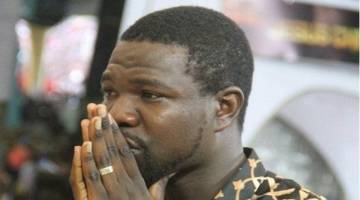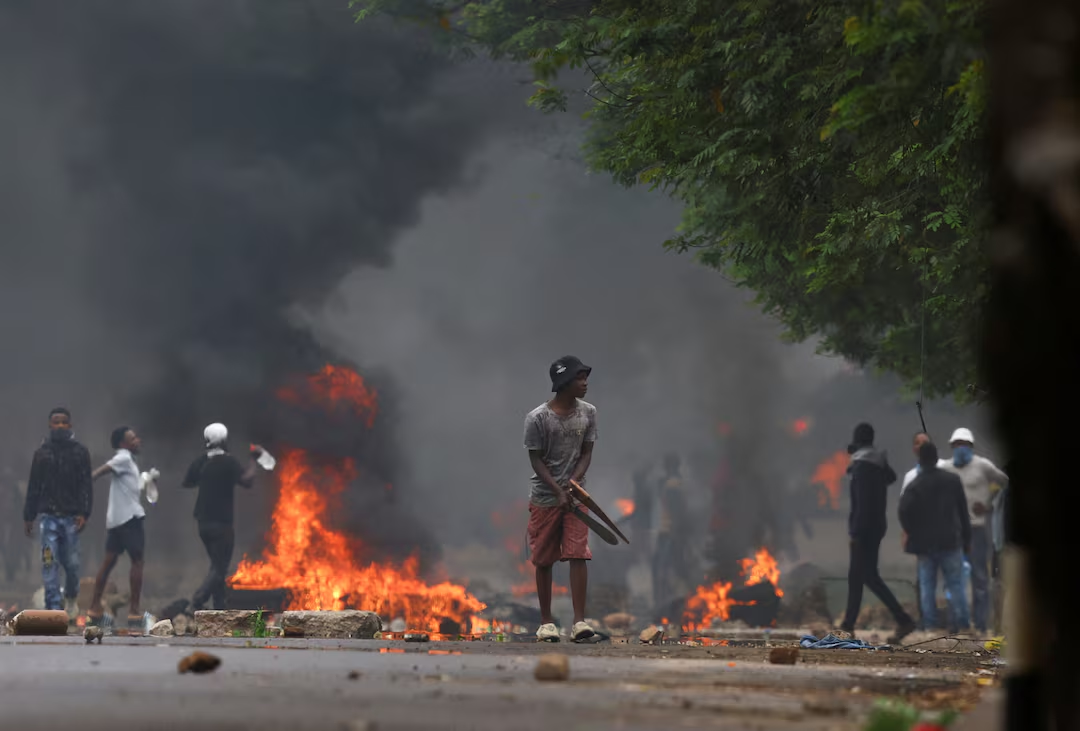Investigative Article: Poisoned Waters –
–Family wants the tender to purify Lake Chivero–
Tracing a 70-Year Trail of Suspicion to Emmerson Mnangagwa
By Farai D Hove | Analysis | ZimEye |
The recent poisoning of Lake Chivero, Zimbabwe’s largest water reservoir and a critical resource for the Harare Metropolitan area, by industrial liquids, has sparked outrage and speculation. While investigations continue, questions are being raised about who might have orchestrated this ecological disaster and to what end. Among the theories circulating is one that traces a 70-year trail of statements, actions, and alleged tendencies attributed to President Emmerson Mnangagwa and his inner circle—casting suspicion on the First Family’s potential involvement.
This article investigates the plausibility of such claims by exploring a series of historical and recent events that might provide context for understanding Mnangagwa’s relationship with opposition forces, governance, and, ultimately, the poisoning of Lake Chivero.
A Childhood Incident That Haunts the Present?
Emmerson Mnangagwa’s own sister, Diana, admitted in a state media documentary that as children, she once struck him, leaving a black mark on his nose. The reason? Mnangagwa had attempted to feed her snake poison. Though this incident may seem trivial in the context of childhood mischief, critics have pointed to it as an early example of his willingness to experiment with harm, raising symbolic questions about his later approach to power and dissent.
1983: Mnangagwa’s DDT Comments
In 1983, Mnangagwa, then Minister of State for National Security during the Gukurahundi massacres, made chilling public remarks referencing DDT—a potent chemical poison—when discussing how to “eliminate” perceived enemies of the state. While his words were metaphorical at the time, they have been cited as evidence of a mindset prone to dehumanizing opposition groups and normalizing extreme measures to maintain control.
This historical context fuels suspicions today, as the poisoning of Lake Chivero primarily impacts areas controlled by opposition-led councils, suggesting a calculated move to destabilize governance in those regions.
Grace Mugabe’s Accusations of Murder Plots
Former First Lady Grace Mugabe has openly accused Mnangagwa of plotting to kill her husband, Robert Mugabe, during his time as an intelligence officer under the Rhodesian regime. While Mnangagwa has denied these allegations, they add to a narrative of ruthlessness and a disregard for human life, especially when targeting those who challenge his authority.
The Oxygen Deprivation Remark (2015)
In a controversial 2015 statement, Mnangagwa said, “If I were God, I would deprive the opposition of oxygen.” Critics argue that such rhetoric reflects not just hostility but a broader disdain for democratic opposition and dissent. It raises questions about whether he views acts of ecological sabotage, like poisoning Lake Chivero, as a legitimate tool to suppress opposition-run councils and communities.
Opposition as the “World of the Dead”
Mnangagwa’s repeated assertions that opposition figures “belong to the world of the dead” and that Zimbabwe’s ruling party supporters will “live happily ever after” underscore a narrative of political dehumanization. In this context, the poisoning of a vital water source serving opposition-led urban areas could be interpreted as an extension of this philosophy—punishment for political dissent cloaked as an environmental disaster.
Sabotaging Opposition Service Delivery
In past public statements, Mnangagwa explicitly targeted opposition-led councils, stating, “Their programs must die at Harvest House” (the headquarters of the MDC Alliance). Lake Chivero, which supplies water to Harare—a city largely under opposition control—has long been a critical point of contention. Opposition leaders have alleged deliberate neglect and sabotage of water infrastructure by the central government, creating fertile ground for speculation about state involvement in the reservoir’s poisoning.
The Sanctity of Life Question: The $20 Million Bribe
In 2019, revelations emerged that Mnangagwa demanded a $20 million bribe from a donor agency in exchange for allowing aid to reach Zimbabweans during a severe drought. This incident exemplifies an alleged pattern of prioritizing personal or political gain over the welfare of citizens. The poisoning of Lake Chivero—if linked to Mnangagwa—would fit into this broader narrative of leveraging crisis situations for political advantage, regardless of the human cost.
The Case of Lake Chivero
What We Know So Far:
• The poisoning of Lake Chivero has caused significant ecological damage, killing fish and other aquatic life and threatening the water supply for millions.
• Opposition leaders claim the central government has failed to respond adequately, while some suggest sabotage as a tactic to undermine their governance.
• Investigations have yet to produce concrete evidence linking the act to any specific individual or group.
Why Mnangagwa is a Suspect:
• A long history of hostile rhetoric and actions toward opposition figures and regions under their control.
• A pattern of using sabotage and harm to consolidate power, as alleged by critics and historical accounts.
• The political benefit of destabilizing opposition-run councils ahead of upcoming elections.
Counterarguments:
• Mnangagwa’s supporters dismiss the accusations as baseless conspiracy theories aimed at discrediting the president.
• They argue that the government has no interest in poisoning a resource vital to the national economy and public health.
Profiteering.
Meanwhile, a revelation has emerged—suggesting that the ecological disaster, which has already claimed the lives of four rhinos and thousands of fish, is not an accident but a carefully orchestrated scheme. Sources allege this sinister plot is driven by greed, implicating politically connected individuals and a corrupt tender process.
At the center of this scandal is a company called Watermark, which allegedly poisoned the lake to manufacture a crisis, forcing the government to declare a state of emergency and award them a lucrative contract to “solve” the problem they created.
The Plot Unfolds: Poisoning for Profit
Lake Chivero, Harare’s primary water source, is facing a man-made disaster. In the past week, poisoned water has devastated wildlife, including the tragic deaths of four endangered rhinos, and has potentially exposed millions of people to toxic chemicals.
Sources close to the matter reveal the following sequence of events:
1. Corrupt Tender Process: Watermark, a company with ties to powerful political figures, was recently awarded a $16 million tender to install sewage pipes—an inflated figure compared to competing bids, one of which was under $2 million. This tender is being legally contested for corruption.
2. Deliberate Poisoning: Facing resistance to their contract, Watermark allegedly poisoned Lake Chivero to create a crisis that would necessitate their involvement as “problem solvers.”
3. False Narrative: To divert attention, Watermark and their backers are claiming that raw sewage overflow is responsible for the poisoning, a narrative pushed aggressively in public forums. However, toxicology experts suspect cyanide or another deliberate chemical agent is behind the disaster.
4. State of Emergency: In the coming days, it is expected that the government, under President Emmerson Mnangagwa, will declare Lake Chivero a disaster zone. This will pave the way for Watermark to receive emergency funding, bypassing further scrutiny or competition.
The Mnangagwa Connection
Key figures implicated in this scheme include Mathew Sibanda, a nephew of President Emmerson Mnangagwa, and Jacob Mafume, who is reportedly involved in facilitating the tender and crisis orchestration.
The alleged involvement of Mnangagwa’s family members has intensified scrutiny, given the president’s historical disregard for human life and environmental preservation (as previously detailed). This plot appears to be another example of leveraging state resources and human suffering for personal gain.
Sibanda did not immediately respond to requests for comment.
The Cost of Greed: Innocent Lives Lost
The deliberate poisoning of Lake Chivero has had devastating consequences:
• Wildlife Deaths: Four rhinos have died from drinking the poisoned water, an unthinkable loss for Zimbabwe’s fragile ecosystem.
• Human Risk: Millions of Harare residents rely on Lake Chivero for their water supply, and toxic exposure could have long-term health consequences.
• Ecological Damage: Thousands of fish and other aquatic life have perished, disrupting the food chain and impacting local communities that depend on fishing for their livelihoods.
What’s Next: The Predicted State of Emergency
According to insiders, the next phase of the plot will involve the government declaring a state of emergency for Lake Chivero. This declaration will enable Watermark to bypass legal challenges and receive millions in emergency funding to “address” the crisis.
By creating the problem and positioning themselves as the solution, the conspirators stand to make millions while risking the lives of innocent people and animals.
The Call for Accountability
This level of corruption and disregard for life cannot go unchecked. Key questions demand immediate answers:
1. Toxicology Investigations: Why hasn’t a forensic toxicology examination been conducted on the rhinos and fish to determine the exact poison?
2. Accountability for Watermark: Who awarded the inflated tender, and why was Watermark selected despite contestations?
3. Government Transparency: Will President Mnangagwa declare the predicted state of emergency, and will he disclose the beneficiaries of the emergency contracts?
4. Justice for Wildlife: How will the government compensate for the loss of endangered species, and what measures will be taken to prevent future ecological sabotage?
Conclusion: “Nhundira-Tsime”—The Politics of Manufactured Crisis
The poisoning of Lake Chivero represents a dark chapter in Zimbabwe’s history, exposing the extent to which greed and political corruption can endanger lives and the environment.
As one source put it, “This is the height of witchcraft. You create a problem and then present yourself as the savior.”
If left unchecked, this scandal will not only deepen mistrust in Zimbabwe’s leadership but also set a dangerous precedent for environmental sabotage in pursuit of personal profit. The people of Zimbabwe—and the voiceless wildlife sacrificed in this plot—deserve justice, transparency, and accountability.
Emmerson Mnangagwa’s family did not respond to requests for comment.
Mayor Jacob Mafume had not responded to requests for comment at the time of writing.
Like this:
Like Loading...






























































































